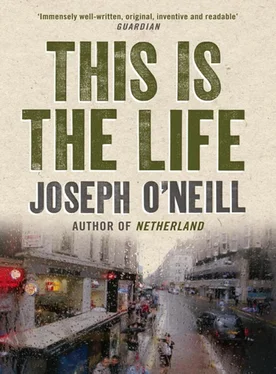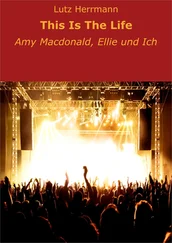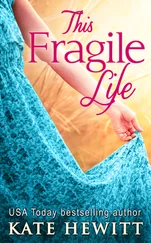1 ...8 9 10 12 13 14 ...52 Rodney did not say anything.
I felt like saying, Rodney, I know that Mr Donovan is a busy man, but I’m afraid some alternative appointment will have to be made. I mean, it is most unsatisfactory, meeting a client at his house, and at such short notice, and at the weekend to boot. It’s just not on, I felt like saying.
I said, ‘That’s not particularly convenient, I’m afraid.’
Rodney still said nothing. He just cleared his throat.
‘Look in your diary,’ I said, ‘there must be another date. There must be some way to accommodate both of us.’
‘You see, that’s just it, sir. Mr Donovan flies back from Strasbourg tomorrow and leaves for Geneva first thing Sunday morning. Saturday night is the only time he is able to put aside.’
‘How long is he staying in Geneva?’
‘He’s down for two weeks, sir. Solid.’
‘You see, at the moment,’ I said, hoping my annoyance would tell in my voice, ‘I’m otherwise engaged.’ I hesitated. ‘If it is really urgent, Mr Donovan could always telephone me.’
Rodney coughed. ‘Mr Donovan has authorized me to say that he is prepared to pay double the ordinary fee, sir. For your trouble, sir.’
‘I see.’ Now it was my time, not Donovan’s, that carried a price-tag. I had no idea what could be so important — Donovan v. Donovan had not even been listed for trial yet — but it was clear that, for whatever reason, he badly wanted to see me. I forced a laugh. ‘I’m afraid I am not open to financial inducements, Rodney, however tempting. You see, it’s not a matter of money, it’s just that I am doing something else.’
He coughed again, and then he said, ‘Treble, sir?’
‘Treble? Treble what?’
‘Your ordinary fee, sir.’
I was — yes, thrilled: I, James Jones, in such demand! Whereas a minute or so previously I had sat perched forward, put out by Donovan’s summons, now I leaned back luxuriously, kicking off my desk to send my chair into 360° twirls. When I saw June walking in, I mimed drinking and stirring — the signal for my sweet cup of tea — and she smiled and nodded. She could tell I was in a good mood. ‘Rodney,’I said, ‘the importance attached by Mr Donovan to the proposed appointment is becoming clearer to me.’
‘Oh yes, sir,’ Rodney said. ‘It’s extremely important. Mr Donovan asked me to stress that. It’s extremely important, sir.’
June came back with my tea. I gave her a thumbs up and dipped my mouth to taste the drink. Then I gave her another thumbs up. ‘Rodney, if that is the case, if you really are in a fix, then it may be that I am able to accommodate you.’ I pretended to look in my appointment book and made doubtful, muttering noises. ‘Yes … I see … Mmmm … Well, I will have to make some phone calls, of course. And a lot will depend on my being able to extricate myself from my previous engagements: you appreciate that.’ This was untrue — I was only due to see Susan for a casual reunion for old times’ sake, and she would understand. ‘But in principle, I should be able to attend.’
‘Thank you sir,’ Rodney said smoothly. ‘Mr Donovan said any time in the evening would be convenient.’
I said authoritatively, ‘I think eight o’clock would suit me.’
It was all arranged. I left a message with Susan’s office and when, Saturday having wheeled around, the time came to drive over, I found myself speeding in my anticipation. I slowed down and breathed deeply. There was no need for nerves or for haste. I had plenty of time, and I did not want to arrive early and over-eager. The address Rodney had given me was 54 Colford Square, in Notting Hill, not too far from where I live, south of the river, in Stockwell. I calculated that if I took my time, I would pull up in front of the house at about eight-fifteen. That was about right. Although I wanted to keep Donovan waiting, I did not want to be too late, either. I had to strike a balance.
Colford Square is a grand, stylish square where imposing and beautiful Edwardian houses surround a sizeable island of parkland. One hot afternoon in the leafy spring (months after the cold November night I am about to describe), I found myself in the vicinity of Colford Square. It was midday, I was emerging from a hard morning in court, and I felt like some peace and quiet. I decided to take shelter on the grassy island. What I had in mind was half an hour lying on the hot grass in my shirt sleeves, eyes closed, breathing in the scents of flowers, hearing the gentle clacks and slaps of croquet mallets for a change, instead of traffic. But I could not get in. I walked twice around the perimeter but could not find an entrance; the wrought-iron gates were locked and the tall and ornamented railings barred any other entry. It was mysterious, because I could hear voices in the glades and thought I saw some movement inside, the flash of white shirts between the gaps in the trees. I was standing around tiredly in the sunlight, trying to think of what to do next, when a friendly man came up to me. He told me, with a smile, as if it were good news, that I could not enter.
‘You have to have a key,’ he said.
‘A key?’
He nodded sympathetically. Maybe he was locked out, too, I thought.
‘How do I get one?’ I asked. The man shook his head. His mouth had the shape of an apology about it.
‘You have to be a resident of the square,’ he said sadly.
‘I see.’ I felt a little scruffy in my rolled-up, unironed shirt. I wished the sticky jacket of my light-grey suit was not bunched up in my fist. ‘Are you sure?’ I asked. ‘You’re sure that there’s no access for a member of the public?’ The man nodded. He was sure. ‘I see,’ I said again. ‘You live here, do you?’
He gave his head another regretful shake. ‘I’m afraid so,’ he said. Then he touched his trousers around the pockets, patting for something. ‘I’d let you in if I could, but I don’t seem to have my key on me. Only so much a man can carry around. Still, never mind,’ he said. ‘There are much nicer places to go to. It’s just a boring old garden really.’ Then he stood there in a friendly kind of way, in the way of someone passing the time of day. I was on the point of speaking — of saying, By the way, my name is James, James Jones — when I realized that he was waiting for me to move on. Which I did, of course. I slung my jacket over my shoulder and walked off into the fuming streets.
That is what Colford Square is like. It is an exclusive place, and people like Donovan, not like me, live there. The residents of Colford Square matter, their actions ripple with consequences. I sensed it straight away as soon as I rolled up that Saturday night in November, at ten past eight, five minutes ahead of schedule. I always arrive ahead of schedule. At parties, for example, I am always the first to show, despite the fact that I find the jangling, ice-breaking atmosphere a real trial; the full bowls of cashews, the conversant hosts, the lucid thickets of glasses waiting in the kitchen. But it is stronger than me. I dread being late or untimely, it makes me physically unwell, and the appointed hour tugs at me with the force of a huge magnetic horseshoe.
I decided to park further round the block and wait for a few minutes where I could not be seen from the house. I reversed into a space, creaked the handbrake on, switched off the lights and waited. It was cold, the rain was rivering down the windscreen. I checked the appearance of my face in the rear-view mirror — pasty, freshly shaven — and sat still.
My shoulder muscles were like rocks and my stomach fluttered with pains — I had to smile at myself, I was exhibiting precisely the symptoms of some adolescent on a hot date. My psychological ploy was rebounding on me: I was the one on tenterhooks, not Donovan. He was probably relaxing in front of the fire right now, sipping a whisky and water. Why did I not just step out of the car and go? Instead of putting myself through this torment?
Читать дальше
Конец ознакомительного отрывка
Купить книгу












